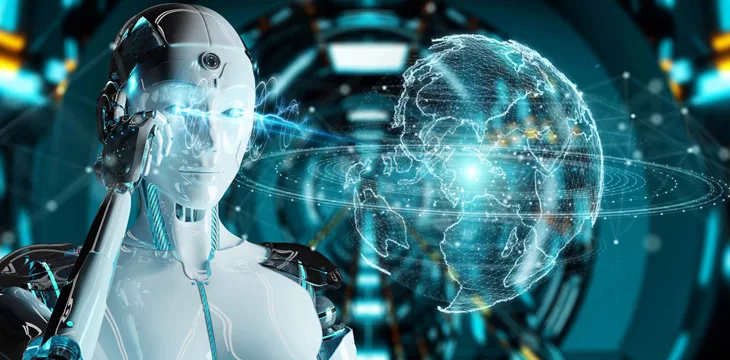|
Getting your Trinity Audio player ready...
|
India will not only use artificial intelligence (AI) to boost economic growth but is also planning to use the technology for climate change mitigation, adaptation and other related issues.
Abhay Karandikar, secretary of India’s Department of Science and Technology (DST), said that the two missions of DST—National Mission for Sustaining Himalayan Ecosystem (NMSHE) and National Mission on Strategic Knowledge for Climate Change (NMSKCC)—have led to significant progress in supporting 19 centres of excellence and 37 major research and development programs over the years.
“I believe that we may need to focus more on developing foundational models in AI in the Indian context,” Karandikar said. He pointed out that indigenous climate models based on data would bring about a better understanding of addressing climate change.
Climate change risks are a serious concern not only globally but also in India. The ill effects of climate change are being felt throughout India with rising temperatures and heat waves, erratic monsoons, and devastating floods. In 2023, India reportedly suffered extreme weather events almost every day during the first nine months of the year, which killed 2,923 people and affected close to 1.84 million hectares of crop area.
“Collective efforts towards a holistic approach involving researchers from multiple disciplines and a range of stakeholders can help address ongoing challenges of climate change and its effect on agriculture, water and environment,” Karandikar said.
AI for weather forecasting
Already, India Meteorological Department (IMD) has announced its plans to use AI and machine learning to predict weather conditions and has reportedly put together a network of 39 doppler weather radars covering 85% of India’s landmass that allow hourly forecasts for major cities.
“We have started using artificial intelligence in a limited way but within the next five years, AI will significantly enhance our models and techniques,” IMD’s director general, Mrutyunjay Mohapatra, said in April.
“Incorporating AI and machine learning allows us to harness past data to extract valuable insights and improve forecasting accuracy without solely relying on traditional physics-based models,” Mohapatra added.
India, the world’s most populated nation with 1.4 billion people, is primarily an agrarian economy, with about 55% of the total workforce engaged in agricultural and allied sector activities. The South Asian nation is one of the world’s largest producers of rice, wheat, and sugar, making accurate weather forecasting extremely significant. The Asian powerhouse is also the world’s second-largest producer of tea, after China, and has been suffering crop loss and reduced productivity due to drought and changing rainfall patterns caused by climate change.
“Both artificial intelligence and numerical forecasting models will complement each other to improve forecast accuracy. Both will work hand in hand and nobody can replace the other,” Mohapatra said.
“We aim to provide forecasts at the Panchayat or village level…tailoring weather information to sector-specific needs in agriculture, health, urban planning, hydrology, and environment,” he added.
A team of experts from the Ministry of Earth Sciences (MoES) and within IMD has reportedly been formed. Collaborations with premier institutions such as the Indian Institutes of Technology (IITs) and the Indian Institutes of Information Technology (IIITs) would allow the team to leverage their expertise in AI and machine learning.
In order for artificial intelligence (AI) to work right within the law and thrive in the face of growing challenges, it needs to integrate an enterprise blockchain system that ensures data input quality and ownership—allowing it to keep data safe while also guaranteeing the immutability of data. Check out CoinGeek’s coverage on this emerging tech to learn more why Enterprise blockchain will be the backbone of AI.
Watch: India posed to become leaders in Web3

 02-16-2026
02-16-2026 




